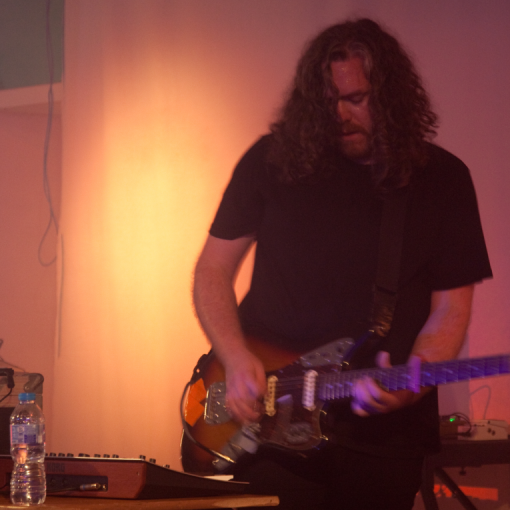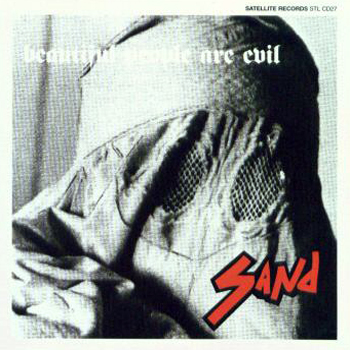 For Portuguese guitarist Pedro Velasco‘s first solo outing on guitar, he is searching deep within himself, looking at memory and solitude and how that can be interpreted in a solo guitar manner. Working simply through an eight-track and a mixer, he has produced a wealth of emotionally resonant vignettes that linger in the mind long after the sound has dissipated.
For Portuguese guitarist Pedro Velasco‘s first solo outing on guitar, he is searching deep within himself, looking at memory and solitude and how that can be interpreted in a solo guitar manner. Working simply through an eight-track and a mixer, he has produced a wealth of emotionally resonant vignettes that linger in the mind long after the sound has dissipated.
The mood can change and the clanging, moody tones that hang in the air on the title track are like a touch of cloud an an otherwise blameless sky. This is more insistent but is a temporary blip, a juxtaposition with the mellower hues to follow. A ghostly echo on “Rabiscos” shimmers like an eternal mirror or like ripples on a lake, going out of earshot; but somehow their resonance lives on, travelling soundlessly. It gives you the impression of vastness or a microcosm of that immensity prepared just for you.
“Pipa d’Água” is near silence, with just a buzz and a rhythmic click of pick-ups which seems to act as a break, a moment of reset before the skysaw guitar of “O Armário Do Tio Paulo” ruffles a few feathers. The strokes are broader but he distortion feels removed, a glimpse of something less welcoming or less accepting.
The calm solitude of “Molas E Carrinhos” is the default setting, but each sketch is like another view of a much-loved scene and can be scattered with the odd freer, more random idea, as if the original premise were put through a kaleidoscope or a blender. It creates a different impression and moves the action or lack of into a more subdued and shaded spot. You can hear the fretting and it gradually reels you in, momentum building for once.
The reversion to pure tone is like a cool breeze and I love the pace of it all. You can enjoy every note and all its connections fully even when, like on the lachrymose “Valsa Destes Tempos”, the sound is barely moving. When the freer and more extreme bursts of noise do appear, it blurs and fuzzes the vision, so used are we to the cleaner sounds; and then in a rush it is gone, to be replaced by the lonesome sound of pedal steel.
Whatever you think of solo guitar, Pedro Velasco’s Divagar Devagar is a thing of meditative beauty that moves through brief but intense moods, gently yet vibrantly, and leaves the silence resounding with its gentle echoes.
-Mr Olivetti-



